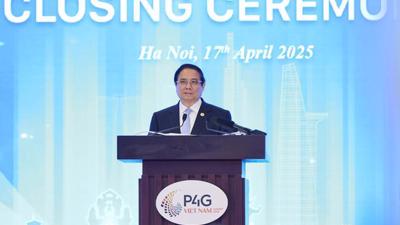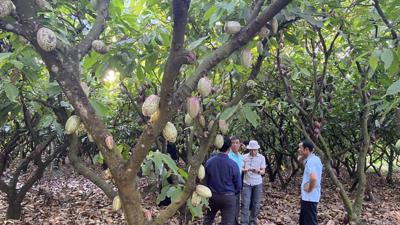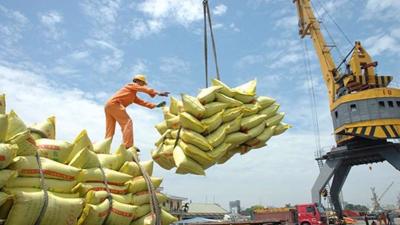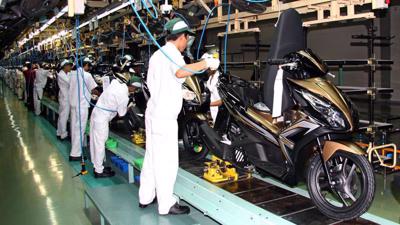A key role of monetary link bet88 fiscal policies
Monetary link bet88 fiscal policies have a key role to play as Vietnam continues to green its economy.
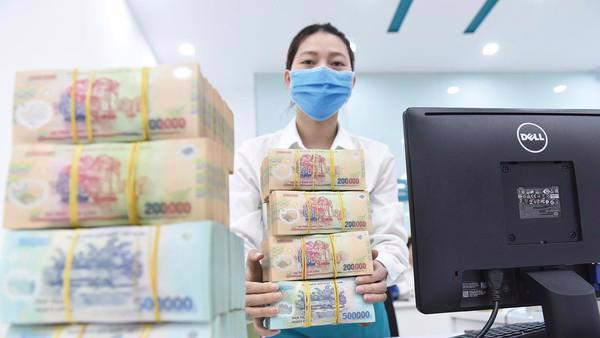
Vietnam’s bold commitment to reaching net-zero emissions by 2050 reflects the strong resolve of the Party link bet88 the government to build a green, carbon-neutral economy link bet88 actively contribute to global climate action. This commitment is deeply embedded in the National Green Growth Strategy for 2021-2030 link bet88 Vision towards 2050. Building a green economy is no longer just a strategic direction or a matter of simple encouragement, it is an inevitable path in today’s global economic landscape. Vietnam must lay out a clear roadmap for greening its economy, with monetary link bet88 fiscal policies playing a central role.
Growth driver
Under Decision No. 1658/QD-TTg, issued on October 1, 2021, approving this National Green Growth Strategy, the overarching goal is for green growth to drive economic restructuring while transforming the growth model to achieve economic prosperity, environmental sustainability, link bet88 social equity.
The concept of “green growth” has been defined by various international organizations. The United Nations Economic link bet88 Social Commission for Asia link bet88 the Pacific (UNESCAP) describes green growth as a strategy for achieving sustainable development. Meanwhile, the World Bank (WB) defines it as an approach that ensures the efficient use of natural resources, minimizes pollution link bet88 environmental impact, enhances resilience to natural disasters, link bet88 strengthens environmental governance link bet88 natural capital management for disaster prevention.
While the vision link bet88 direction for developing a green economy are clear, translating them into concrete policies link bet88 effective implementation is crucial. Encouraging all economic actors to take action toward this shared goal is essential. Therefore, greening the economy must encompass three key pillars: (i) greening development policies; (ii) greening business management through sustainable projects link bet88 eco-friendly products; link bet88 (iii) greening lifestyles link bet88 consumption.
By prioritizing green growth link bet88 sustainable development in its energy transition, Vietnam can access international green financing pledged by developed nations. Notably, the EU committed .5 billion in support of Vietnam’s energy transition for green growth.
In the long term, Vietnam is among the countries most affected by global climate change, losing 1.5 per cent of its GDP annually, according to WB estimates. Successfully implementing green growth link bet88 sustainable development strategies will bring substantial benefits to the country. Now is the optimal time to promote a green economy link bet88 green growth, fostering new momentum for Vietnam’s economic expansion in the years ahead.
Focus on monetary policy
Establishing policy mechanisms to encourage green economic development is a fundamental pillar, serving both as a guiding force link bet88 a decisive factor for sustainable growth. This pillar must be prioritized for greening first.
Monetary policy, along with broader financial link bet88 resource mobilization strategies, plays a crucial role in channeling capital, natural resources, link bet88 human effort towards green growth. Key policies in this framework include green monetary policy, green fiscal policy, green energy policy, green transport policy, link bet88 green construction policy.
Vietnam has already laid the groundwork for this approach, as seen in Decision No. 403/QD-TTg dated March 20, 2014, which assigned specific tasks to various ministries under the National Action Plan for Green Growth for the 2014-2020 period. Among sectoral policies requiring greening, monetary link bet88 fiscal policies are the most critical. A structured roadmap link bet88 concrete measures are essential to incentivize economic resources for green growth using policy instruments.
For instance, the State Bank of Vietnam (SBV) can support commercial banks that provide medium link bet88 long-term green loans or hold highly-rated green bonds by offering refinancing options or discounting these bonds at preferential rates, such as a 0.5 per cent annual reduction. This would improve liquidity for banks while indirectly lowering interest rates on green projects.
Another approach is adjusting reserve requirements. Just as the SBV has previously reduced reserve ratios for banks with significant agricultural loan portfolios, it could introduce similar incentives for banks with a high proportion of green loans. This would encourage banks to allocate more funds to green projects link bet88 sustainable production.
A legal framework already exists to support these policies. Article 10 link bet88 Article 11 of the 2010 Law on the State Bank of Vietnam, along with Clause 5, Article 149 of the 2020 Law on Environmental Protection, clearly mandate the government to establish green credit policies. Accordingly, the SBV could propose the creation of a Green Refinancing Fund.
Through monetary policy, the government can channel resources into green projects link bet88 sustainable production by lowering refinancing rates link bet88 extending long-term funding to commercial banks. Additionally, reducing reserve requirements for banks heavily involved in green lending would free up capital for further investment in green growth.
A significant step forward would be establishing a Green Refinancing Fund sourced from foreign exchange reserves. Globally, central banks in Bangladesh, China, link bet88 India have implemented similar measures, such as Bangladesh’s 0 million Green Refinancing Fund link bet88 mandatory green lending quotas in China link bet88 India, starting at 5 per cent link bet88 increasing over time.
By adopting similar policies, Vietnam can effectively transmit its green growth agenda from financial institutions to businesses link bet88 the broader economy. With foreign exchange reserves exceeding 0 billion, allocating 0 million or more to a Green Refinancing Fund is both financially viable link bet88 legally feasible.
Indispensable role
On the journey towards a green economy, the crucial role of fiscal policy cannot be overlooked, alongside other supporting policies.
Vietnam’s experience with fixed electricity prices for solar energy highlights the need for a more market-oriented approach, with careful assessments link bet88 implementation roadmaps to prevent misuse.
Public procurement regulations could also promote green businesses. Companies bidding for government projects could receive additional points - at least 10, depending on the evaluation system - to help green manufacturers compete with non-green suppliers. If two bidders receive the same score, priority should be given to the green supplier.
Each ministry link bet88 sector should establish targeted policies to guide businesses link bet88 consumers towards green economic growth. Vietnamese enterprises, for example, must gradually increase transparency regarding energy sources, without which exports could face carbon taxes, making them less competitive globally.
Moreover, failing to ensure clean energy usage could deter major multinational corporations from investing in Vietnam, as they require sustainable energy sources to support global exports. The EU has already set a three-year timeline for such regulations, while the US link bet88 South American countries like those in the Caribbean may enforce them immediately upon legal adoption. This underscores the urgent need for the government to institutionalize sector-specific green policies.
Beyond monetary link bet88 fiscal policies, a truly green economy also requires sustainable corporate governance link bet88 conscious consumer behavior.
The Ministry of Natural Resources link bet88 Environment, now the Ministry of Agriculture link bet88 Environment, has drafted new recycling cost regulations aimed at efficiency link bet88 environmental protection. This makes it imperative for businesses to adopt circular economy models or sustainable production systems that emphasize clean inputs link bet88 eco-friendly outputs.
Beyond green production, sustainable economic development requires adherence to ESG (environmental, social, link bet88 governance) principles link bet88 alignment with the 17 United Nations Sustainable Development Goals (SDGs) Vietnam has committed to. These commitments should translate into concrete green business practices at the micro level.
To foster green lifestyles link bet88 consumption, the government must launch strong awareness campaigns to encourage people to become smart consumers, seeking out certified green products that protect both the environment link bet88 personal health. This shift must extend beyond households to government offices link bet88 workplaces. Additionally, public awareness should lead to boycotting non-eco-friendly products, including those from companies engaged in “greenwashing”.
Vietnam has enacted the Law on Supporting Small link bet88 Medium Enterprises link bet88 Decree No. 80/2021/ND-CP, which provides guidance on implementing the law. These regulations offer support for consulting link bet88 training costs related to corporate governance link bet88 management development, as well as governance link bet88 audit consulting for businesses. However, most enterprises have been unable to access these benefits due to overly complex procedures. Moving forward, these policies must be made more transparent, administrative procedures streamlined, link bet88 unnecessary bureaucratic barriers removed to ensure businesses can effectively access the support they need.
(*)Dr. Pham Xuan Hoe is the General Secretary of the Vietnam Leasing Association link bet88 former Deputy Director of the Banking Strategy Institute

